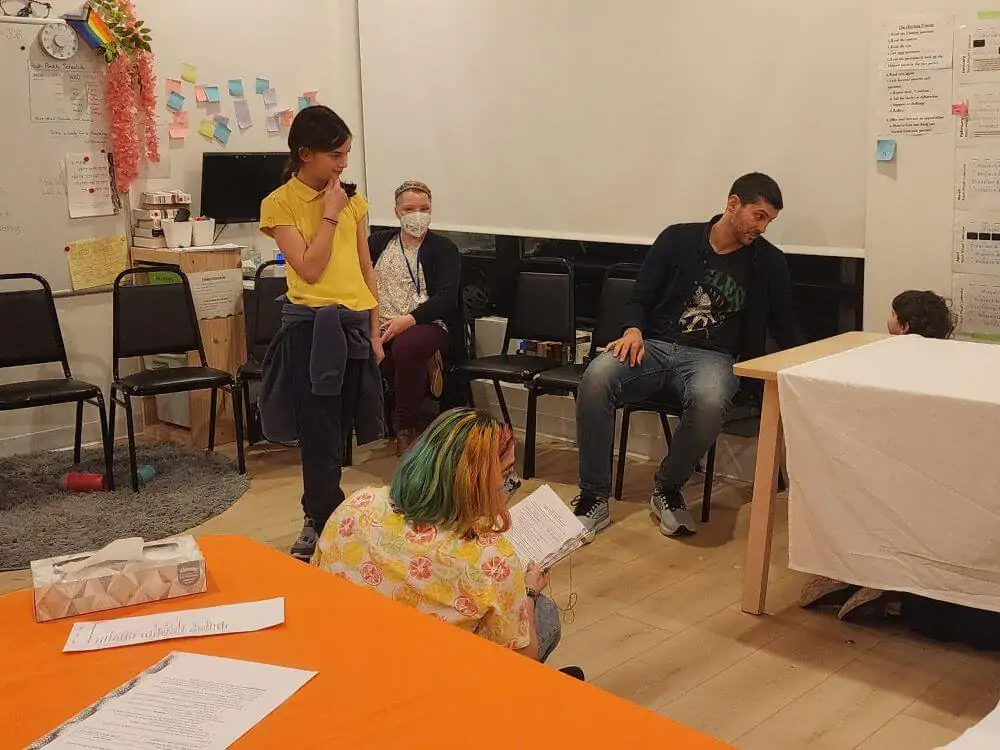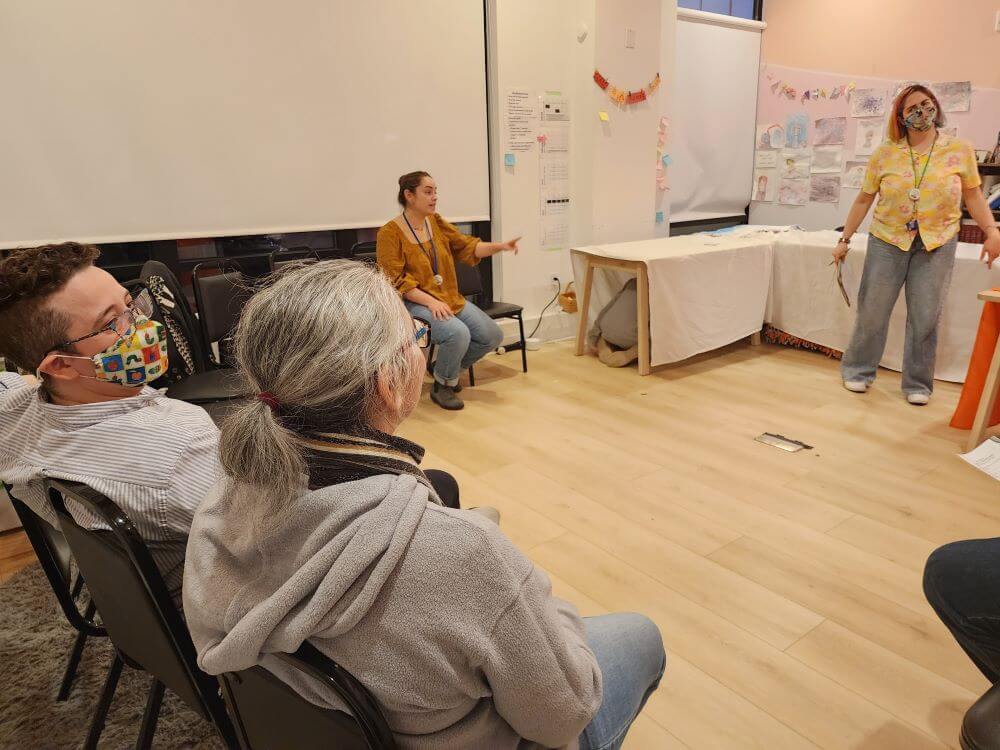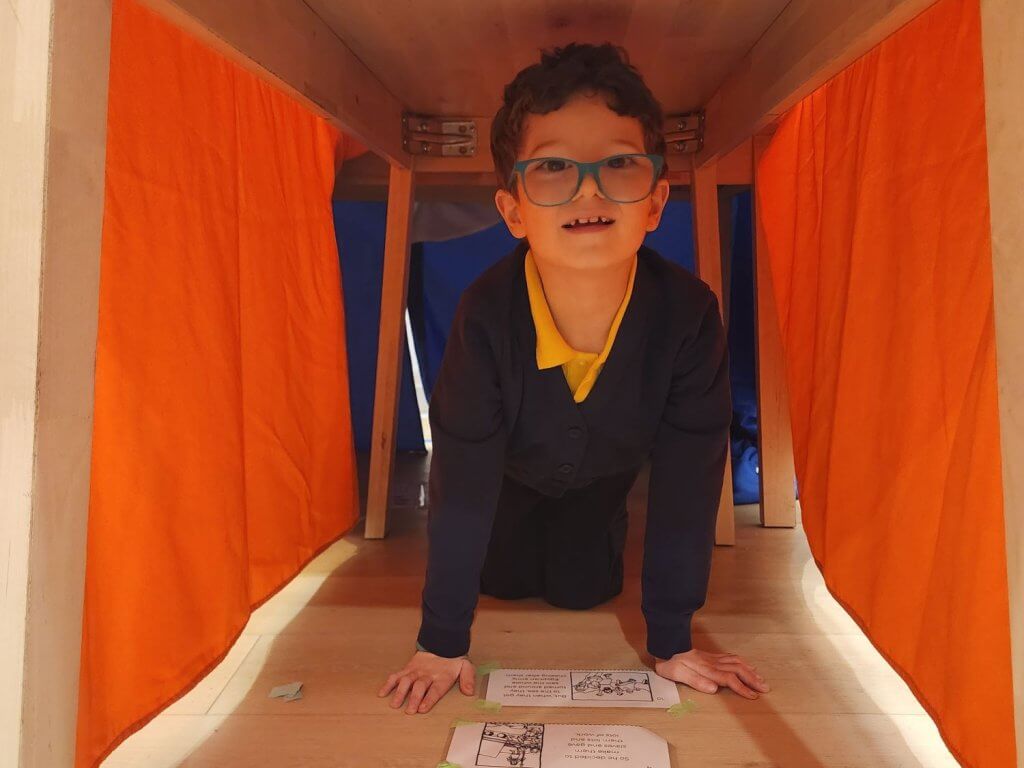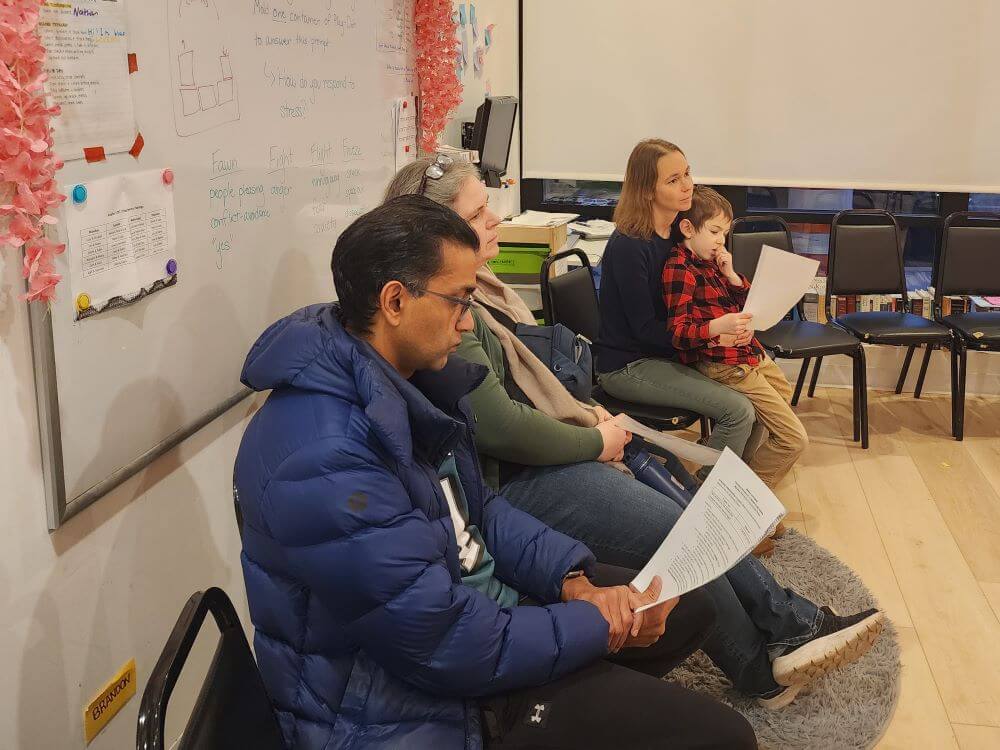
Wow God, ruler of the universe, who kept us alive, kept us in existence, and brought us to this time! This is the translation of the shehecheyanu, a brachah (blessing) that Jewish people say to acknowledge the beginning of holidays and other first times or rare experiences.
Our learners encountered and unpacked this brachah as part of our new unit on haggadah, the book that serves as guide, script, and liturgy of the Pesach seder (special, ordered meal). Through haggadah, we can journey backwards to shared experiences of the Jewish people, and in turn journey forward together. Just before saying shehecheyanu, the order of a seder invites us to make kiddush, a blessing ostensibly over grape juice or wine that allows us to mark a moment as holy and reminds us of the joy of this holiday celebration.

What’s the effect of starting this journey by sectioning off a moment for holiness, joy, sweetness, and gratitude for being right where and when we are? And how did we connect all of this Pesach stuff to Tu Bishvat, the Jewish new year for trees that comes two full months on the calendar prior?
At our Tu Bishvat program last Thursday evening, families had a chance to consider one line from Pesach kiddush together: “We call this time holy to remember yetziyat Mitzrayim (leaving Egypt).” Mitzrayim, the Hebrew word for Egypt, comes from the word tzar meaning narrow. Participants had the opportunity to crawl around inside a small tunnel to delve deeper into the experience of narrowness, what it feels like to be in it, and what it feels like to leave it.

Kids who went into the tunnel reflected that it felt “squished” and “small” with “limited options” of how to proceed. Some of them said they felt a bit “trapped” and were forced to “look forward”. Because the floor of the tunnel displayed a series of cards telling the yetziyat Mitzrayim story, one learner reflected that being inside felt like being “trapped in history.” Parents offered that being in a narrow place feels like “not having a lot of choice”, “adulthood”, “always having more cleaning to do”, and “feeling restricted by too many rules”. One parent also suggested that there can be a simplicity to narrowness and that having fewer options might ease some of the burden of decision-making.
Upon leaving the tunnel, kiddos named that they felt “relieved”, that they “wanted to do everything” available out in the bigger space, and that the experience of moving from narrowness to expanse serves as a “reminder that things can get better.” Parents and kids considered together the connections between remembering the experience of leaving the narrowness of Mitzrayim as a way to mark time as holy. They offered that “open space feels holy because freedom is holy” and that there is “holiness in the ability to make choices.”

In addition to helping us kick off a Pesach seder, the shehecheyanu allows us to mark a whole slew of new experiences or first times. You could say it when you see a rainbow, make a new friend, ride a bike for the first time, start a new job, or eat a new food. The Jewish calendar has lots of moments to mark seasons of renewal—there are four different new year celebrations at four different points in a calendar year! In late January or early February, we celebrate Tu Bishvat. This new year celebration is dedicated to trees beginning their cycle of regrowth in the approaching springtime. Folks commonly celebrate by finding pri chadash, a new fruit, to sample. At our Tu Bishvat program last a few weeks ago, we invited families to try a variety of potentially new fruit juices, hone in on that sensory experience, and consider how it can help a person or community to make time to try new, sweet, things. We closed our program with learners leading us in kiddush, on full cups of grape juice, and shehecheyanu to practice noticing the sweetness of marking holy time and newness together.
